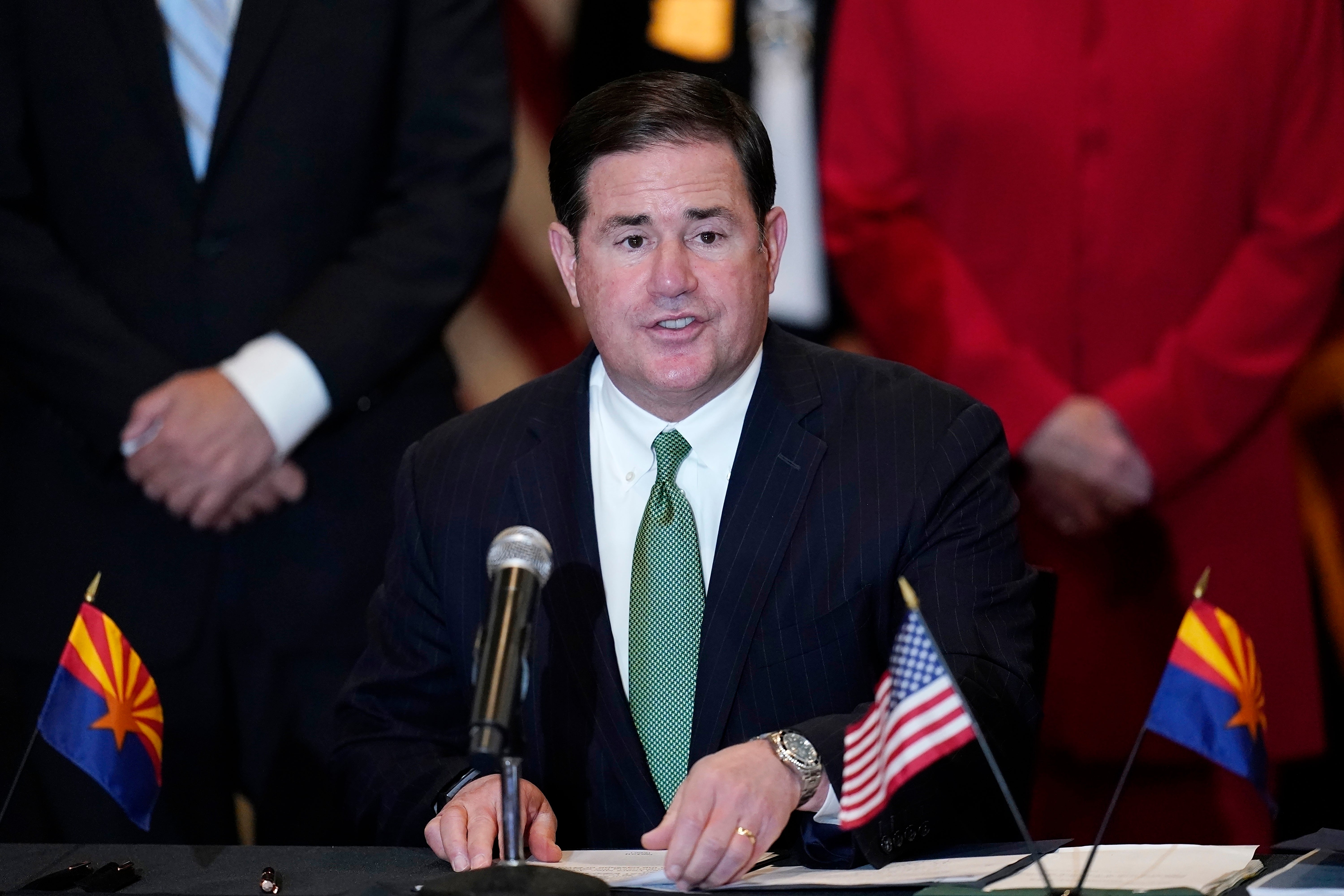Arizona governor to focus on semiconductors in Taiwan visit
Arizona Gov. Doug Ducey has arrived in Taiwan for a visit focused on semiconductors, the critical chips used in everyday electronics that the island manufactures

Your support helps us to tell the story
From reproductive rights to climate change to Big Tech, The Independent is on the ground when the story is developing. Whether it's investigating the financials of Elon Musk's pro-Trump PAC or producing our latest documentary, 'The A Word', which shines a light on the American women fighting for reproductive rights, we know how important it is to parse out the facts from the messaging.
At such a critical moment in US history, we need reporters on the ground. Your donation allows us to keep sending journalists to speak to both sides of the story.
The Independent is trusted by Americans across the entire political spectrum. And unlike many other quality news outlets, we choose not to lock Americans out of our reporting and analysis with paywalls. We believe quality journalism should be available to everyone, paid for by those who can afford it.
Your support makes all the difference.Arizona Gov. Doug Ducey arrived in Taiwan on Tuesday for a visit focused on semiconductors, the critical chips used in everyday electronics that the island manufactures.
Ducey is on a mission to woo suppliers for the new $12 billion Taiwan Semiconductor Manufacturing Corp. (TSMC) plant being built in the state. He is traveling with the Arizona Chamber of Commerce president and the head of the state's economic development agency.
Ducey is to meet with Taiwanese President Tsai Ing-wen, business leaders and university representatives in the semiconductor industry, Taiwan's Ministry of Foreign Affairs said in a statement.
American states are competing to attract a multibillion-dollar wave of investment in chip factories as the U.S. government steps up spending on expanding the U.S. semiconductor industry with a recently passed law. Last week, the Indiana governor visited Taiwan for a similar purpose.
U.S. officials worry that the country relies too heavily on Taiwan and other Asian suppliers for processor chips used in smartphones, medical devices, cars and most other electronic devices.
Those worries have been aggravated by tensions with China over technology and security. The potential for disruption was highlighted by chips shortages due to the coronavirus pandemic that sent shockwaves through the auto and electronics industries.
Taiwan produces more than half the global supply of high-end processor chips.
Beijing, which claims self-ruled Taiwan as its territory, fired missiles into the sea near the island starting on Aug. 4 after U.S. House Speaker Nancy Pelosi visited, disrupting shipping and air traffic, and highlighting the possibility that chip exports might be interrupted.
A law approved by Congress on July 29 promises more than $52 billion in grants and other aid to develop the U.S. semiconductor industry and a 25% tax credit for investors in chip factories in the United States.
State governments are now promising tax breaks and grants to lure chip factories they hope will become centers for high-tech industry.
Intel Corp., the only major U.S. producer, announced plans in March 2021 to build two chip factories in Arizona at a cost of $20 billion. The company has had another facility in Arizona since 1980.
In January, Intel announced plans to invest $20 billion in a chip factory in Ohio.
TSMC., headquartered in Taiwan and which makes chips for Apple Inc. and other customers, announced plans last year to invest $3.5 billion in its second U.S. manufacturing site in North Phoenix, Arizona.
TSMC's first U.S. semiconductor wafer fabrication facility is in Camas, Washington. It also operates design centers in San Jose, California, and Austin, Texas.
South Korea’s Samsung Electronics says it will break ground in 2024 for a $17 billion chip factory near Austin, Texas. The state says it is the biggest single investment to date in Texas.
___
McDonald reported from Beijing, China.